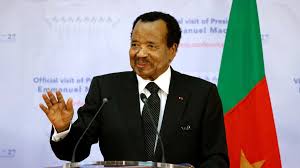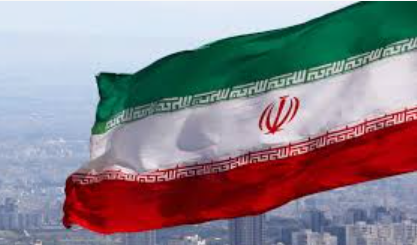
Paul Biya: Cameroon leader turns 92 after nearly half his life in power
Last month, government spokesperson and Communication Minister Rene Emmanuel Sadi stated, "The president has already stated that he will make known whether or not he is a candidate in this election at the appropriate time."
Biya has not chosen a successor, and it is still taboo to discuss who will take his place.
In a July interview with the newspaper Mutations, former minister Garga Haman Adji stated, "In the current context, candidate Biya will be re-elected even if he were lying on a stretcher."
When Biya vanished from the public eye for a few weeks last year, worries about his health increased.
Authorities issued a statement claiming that Biya was in Switzerland, where the leader frequently spends extended stays at upscale vacation spots, in response to persistent rumours.
The local media was then officially prohibited by the government from reporting on his health.
Biya has made few public appearances since his return to the nation on October 21. These have included a few speeches that were televised, a regional meeting in the capital Yaounde, and a few formal pictures at the presidential palace.
Similar to past election years, he is being urged to run for office once more by voices from all walks of life.
In his year-end speech, Biya welcomed "massive support" and stated, "Given the scale of the challenges we face, my determination to serve you remains intact and is strengthened on a daily basis."
Traditional leaders stated their "total and unwavering" support in January. Supporters said on Facebook that Biya was "still strong" and capable of withstanding two more terms.
"Cries of distress": International human rights organisations frequently accuse Biya and his administration of suppressing dissent.
Seven years ago, the long-serving president was re-elected for a seventh term following a contentious election that led to a wave of political persecution.
Few publicly demand that he cede control.
The concerns of the great majority of Cameroonians have recently evolved into more and more distressing cries in the face of the misery they are experiencing and the degradation of our beautiful country,” Catholic bishops at an episcopal conference said.
They also criticised the “corruption”, unemployment and deadly violence that plagues parts of the country.
Since 2009, the far north of Cameroon has suffered attacks from Boko Haram jihadists and the Islamic State West Africa Province (ISWAP).
In the west of the country, a deadly conflict has pitted armed independence groups against security forces in two English-speaking regions since 2016.
Biya, for his part, praised in his last speech “the tremendous progress seen in recent years”.
In a hoarse, wheezy voice, he hinted at “the next electoral deadline” and called on young people “not to listen to the sirens of chaos that some irresponsible people are sounding”.
The positions of four ministers who passed away while in office remain unfilled, and the government hasn't been reorganised since January 2019.
Additionally, five of the 100 senators and more than a dozen legislators out of 180 have not been replaced since their passing.





